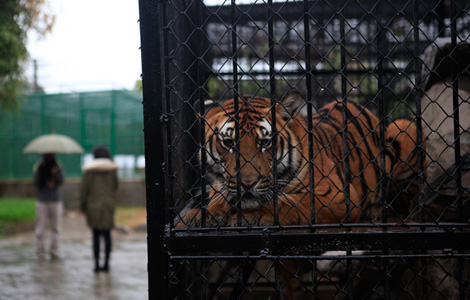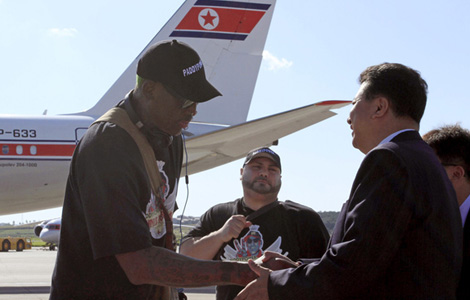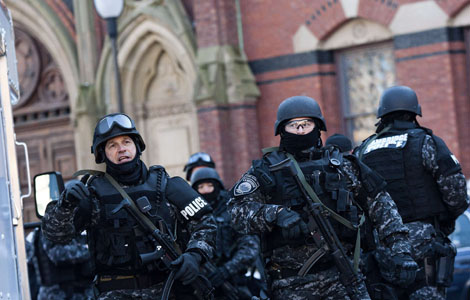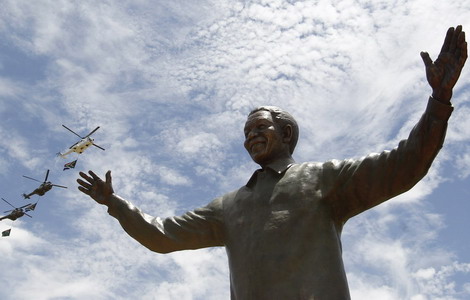
Japan will boost its military spending in coming years, buying early-warning planes, beach-assault vehicles and troop-carrying aircraft, while seeking closer ties with Asian partners to counter China.
The planned 2.6 percent increase over five years, announced on Tuesday, marks the clearest sign since Prime Minister Shinzo Abe took office a year ago that he wants a bigger military role for Japan.
Abe's top priority has been reviving a long-sluggish economy, but he has also pledged to strengthen Japan's military and boost its security profile.
Abe's government also vows to review Japan's ban on weapons exports, a move that could reinvigorate struggling Defense contractors like Mitsubishi Heavy Industries Ltd and Kawasaki Heavy Industries Ltd.
The policies, including a five-year military buildup plan and a 10-year Defense guideline, call for stronger air and maritime surveillance capabilities and improved ability to defend far-flung islands through steps, such as setting up a marine unit, buying unarmed surveillance drones and putting a unit of E-2C early-warning aircraft on Okinawa island in the south.
Japan will budget 23.97 trillion yen ($232.4 billion) over the coming five years for Defense spending, up from 23.37 trillion yen from the previous five years.
Under current procurement practices, the five-year spending would have been 24.67 trillion yen, but the government expects to save 700 billion yen from streamlining procedures to cut costs, officials said.
Abe boosted the Defense budget 0.8 percent this year. The Defense Ministry is seeking a 3 percent rise in the year from next April, the biggest increase in 22 years, although much of the growth reflects higher import costs due to a weaker yen.
In the two decades through last year, Japan remained the sixth-biggest military spender, just behind Britain, with outlays rising 13 percent in constant 2011 dollar terms, according to the Stockholm International Peace Research Institute.
Past Japanese governments have stretched the limits of a postwar Constitution that renounces war and says Japan will never have an army or navy. Abe wants to go further, including lifting a ban on fighting overseas or aiding an ally under attack, such as a US Navy ship attacked by a North Korean missile.








